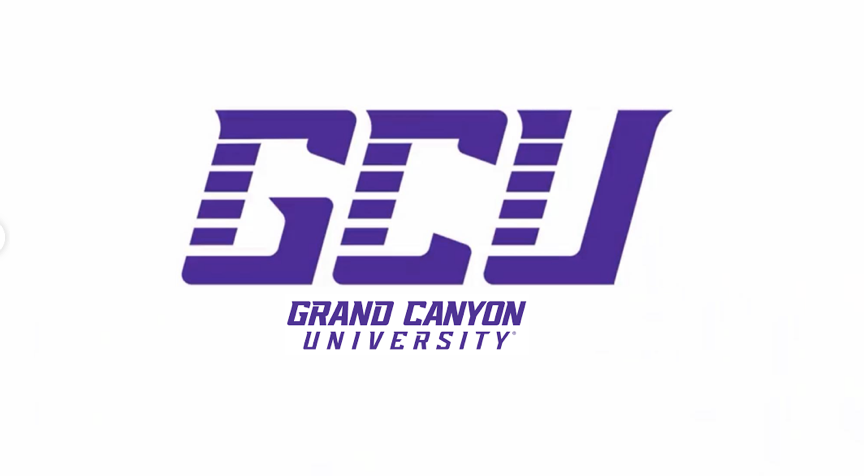Max Out Transfer Credit
GCU accepts transfer credit for up to 90 CUs. Accepted credit sources include:
- Accredited universities
- ACE-approved providers like Study.com
- Mility JST transcripts
- CLEP/DSST exams
- Industry certifications, including SHRM, Cisco, CompTIA, and PMI.
⚠️ Important: All transfer credits should be submitted prior to enrollment. After starting at GCU, no additional outside credit will be accepted. At least 30 credit units must be accomplished at GCU.
Lorem ipsum dolor sit amet, consectetur adipiscing elit. Suspendisse varius enim in eros elementum tristique. Duis cursus, mi quis viverra ornare, eros dolor interdum nulla, ut commodo diam libero vitae erat. Aenean faucibus nibh et justo cursus id rutrum lorem imperdiet. Nunc ut sem vitae risus tristique posuere.
Why GCU Works for Degree Hackers
Grand Canyon University is one of the best schools for degree hackers for these reasons:
- Short, Predictable Course Blocks
Online courses are 7-8 weeks plan back-to-back sessions to keep the momentum and rack up credits fast.
- Frequent Starts
Weekly online starts mean you don’t lose time waiting for a new term.
- Transfer-Friendly + Alternative Credit
Bring college credits, then add CLEP/DSST/AP, ACE-evaluated training, and prior-learning assessment up to 30 alternative credits apply; within the 90-credit transfer max.
- Military Credit Pathway
Military training (JST/CCAF, etc.) can be combined with alternative credit up to 60 total between those two buckets.
The GCU Learning Model
At Grand Canyon University, your education is designed to fit your life. Our flexible, student-focused model lets you progress through courses at your own pace, proving your skills through assessments instead of rigid deadlines. You’ll have guidance every step of the way from experienced mentors and faculty, all within a fully online, technology-driven campus built for busy adults like you.
Assessment Types
Weekly discussions, projects, papers, quizzes, and instructor-graded assignments inside GCU’s Halo online classroom. Support includes writing help, tutoring, and study resources.
Student Support Network
Advising and the Student Success Center provide templates, style guides, tutorials, and policy references to keep you moving.
Digital Rhythm
Plan two online sessions per semester (7-8 weeks each) to optimize pace while campus programs follow 15-week terms.
Fixed Tuition = Lower Cost Per Credit
Instead of changing per course, GCU charges per credit at ~$485 each for most bachelor’s programs taken online, or $8,250 per block of 12-18 credits for on-campus learning.
Always-Open Admissions Calendar
With weekly online starts, GCU helps you keep your momentum going. No need to wait for season-based semesters. You can start when you’re ready.
GCU Snapshot: At a Glance
Here are key GCU facts every prospective student should know:
- Institutional Accreditation: Higher Learning Commission (since 1968) and the Arizona State Board for Private Postsecondary Education.
- Online Tuition (2025-26, per credit): Most bachelor’s programs $485; Education/Science $460; Theology $410; RN-to-BSN $340. Military (active duty/active reserve/National Guard & spouses) $250. Continuing Education (CTE) online $165.
- On-Campus Tuition (2025-26): $8,250 block (12-18 credits) or $687.50/credit (1-11 or 19+ credits). Summer rate $310/credit.
- Course Format & Starts: Online classes run in two 7-8-week sessions with rolling, frequent starts (most classes start weekly); campus follows 15-week fall/spring semesters.
- Transfer & Residency: Up to 90 transfer credits toward a bachelor’s, of which no more than 84 may be lower-division; at least 30 credits must be completed at GCU; minimum 36 upper-division credits required for graduation. Alternative credit (CLEP/DSST/AP/approved certificates/PLA) capped at 30 credits.
Popular Fast-Finish Majors at GCU
GCU offers a variety of high-demand degree programs in technology, business, health, and education and many are structured for faster completion so you can reach your career goals sooner. Some of which are:
- Business: BS in Business Administration, Accounting, Marketing
- Technology: IT, Cybersecurity, Software Development
- Health & Nursing: RN-to-BSN (for licensed RNs; accelerated track); ABSN (second-degree, site-based, as little as 16 months).
- Education: Elementary, Secondary, Special Education (licensure depends on state and confirm requirements)
- Humanities/Social Sciences & Theology: Psychology, Communications, Christian Studies
Note: Many students finish faster by transferring in gen-eds/electives and focusing the remaining GCU credits on the major core and upper-division requirements.
Admissions Snapshot
Applying to GCU is simple and entirely online, with weekly start dates available to match your schedule. Here’s what you’ll need to get started:
- Online application (fees vary)
- Official transcripts and proof of HS diploma/GED
- Program-specific requirements (some majors add extra steps)
- Online programs start frequently (often weekly) so connect with a counselor for the nearest start
What It Really Costs and How to Pay Less
GCU Tuition Overview
GCU’s flat-rate tuition model helps make your degree more affordable, particularly when you transfer credits and progress at an accelerated pace.
Lower the Bill:
Lower your total tuition by leveraging transfer credits, accelerating your course load, and utilizing available financial aid or employer benefits. Try these strategies to cut costs and graduate faster:
- Max out transfer + alternative credits (CLEP/DSST/AP/ACE/PLA) before matriculation when possible.
- Ask about military, scholarships, and employer alliances.
- Sequence courses to stay continuously enrolled in 7-8-week sessions.
Career Outcomes & ROI
GCU alumni often experience significant career growth by securing competitive salaries, landing jobs quickly, and building networks with leading employers across the country. Here are a few ways GCU helps set graduates up for success:
- Approx. $54,300 median earnings 10 years after enrollment (College Scorecard–based).
- Active employer recruiting via regular on-campus & virtual career fairs (e.g., Government & Non-Profit Fair last Feb 13, 2025).
- Career services such as resume/interview coaching, job postings, and employer connections to help you land roles faster.
Five-Step GCU Transfer Checklist
Use this streamlined approach to maximize your transfer credits, accelerate your terms, and earn your Grand Canyon University degree at the lowest cost.
Degree Hacking Coach’s Corner
Considering Grand Canyon University’s online programs? This quick video breaks down the real pros, cons, and tuition-saving hacks using platforms like Study.com.









.svg)
.svg)
.svg)
.svg)
.svg)



